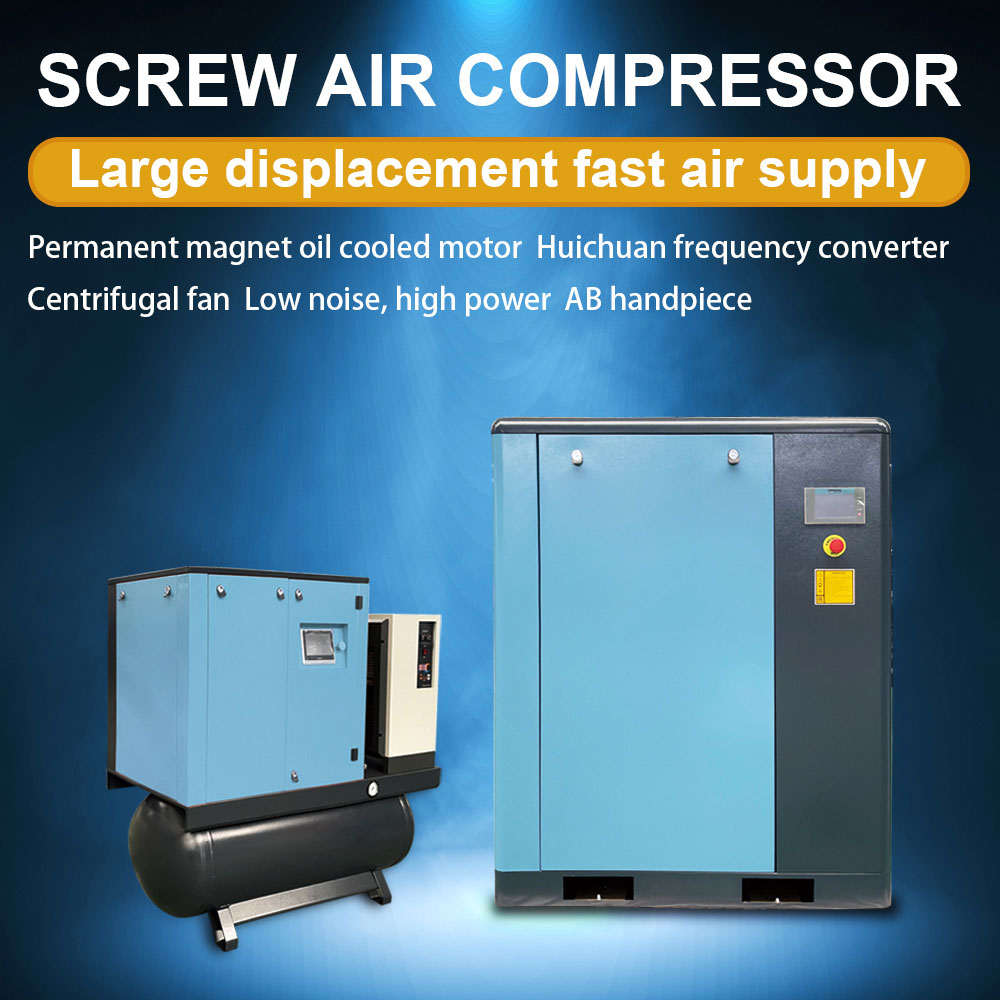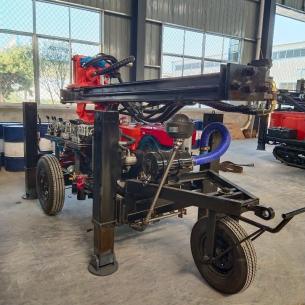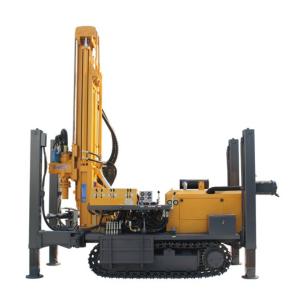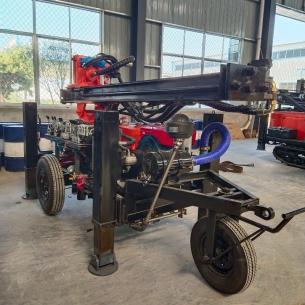Air Compressors In Drilling: The “Invisible Drill” Of Underground Engineering
When drilling water wells, conducting geological exploration, or mining, air compressors are far from a supporting role; they are the core driving force behind modern drilling technology. The powerful, stable compressed air flow they provide directly determines drilling efficiency, costs, and ultimate results.
Simply put, an air compressor in drilling is a machine specifically designed to deliver a massive volume of high-pressure air down the drill string and out through the drill bit. This powerful airstream isn't just air; it's the primary mechanism for:
Clearing the Cut
As the drill bit pulverizes rock, it creates drill cuttings. The high-velocity air rushes up the annular space , carrying these cuttings to the surface. This is the most vital function, preventing the hole from clogging and allowing the bit to continue cutting efficiently and penetrating deeper.
Cooling the Bit
Friction generated at the drill bit during rock cutting produces intense heat. The constant flow of compressed air acts as a coolant, preventing the bit from overheating and sustaining damage, significantly extending its lifespan.
Powering the Hammer
DTH hammer drilling – a highly efficient method especially for hard rock – the compressed air does double duty. It not only cleans the hole but also powers the pneumatic hammer mechanism located just behind the bit. The air drives the hammer's piston, delivering rapid, powerful blows directly to the bit, shattering the rock.
Why Compressed Air?
While other fluids (like mud) are used in drilling, compressed air offers unique advantages, particularly in the widely used Rotary Air Drilling method:
Speed
Air systems often allow for faster penetration rates, especially in hard, dry formations.
Formation Protection
In water-sensitive formations or where aquifer contamination is a concern, using air prevents the issues associated with liquid drilling fluids.
Simplicity & Cost
Air systems can be simpler to operate and maintain compared to complex mud systems, potentially lowering operational costs.
Environmental Impact
Using only air minimizes fluid disposal needs and reduces the environmental footprint.
Choosing the Right Borehole Compressor: It's Critical
Selecting an air compressor isn't a one-size-fits-all decision. The wrong size or type can cripple a drilling operation. Key factors include:
Hole Diameter & Depth
Larger diameters and greater depths demand exponentially higher air volumes to maintain adequate air velocity for effective hole cleaning.
Geology
Harder rock formations typically require higher air pressure , especially for DTH drilling. Wet formations might need foam injection capabilities.
Drilling Method
DTH hammer drilling requires both high volume and high pressure. Rotary drilling with a tricone bit primarily focuses on high volume for cleaning.
Portability & Power
Site accessibility dictates whether a highly portable towable unit or a larger skid-mounted compressor is needed. Diesel power is standard for remote locations.
in conclusion
The air compressor is far more than just an accessory on a drilling rig; it's the vital circulatory and respiratory system of the operation. By efficiently clearing cuttings, cooling the bit, and powering downhole hammers, it enables faster penetration, protects valuable equipment, and ultimately determines the success and efficiency of creating a borehole. Understanding its fundamental role and selecting the right compressor for the specific geological and operational demands is foundational knowledge for anyone involved in drilling water wells, exploration, or any project requiring a deep, clean hole.
Ready to Find the Perfect Compressor for Your Drilling Needs?
Choosing the right air compressor is paramount to your project's success. Explore our range of high-performance, reliable drilling compressors designed to meet the toughest challenges, or contact our experts today for personalized advice on matching the perfect compressor to your specific borehole requirements.




